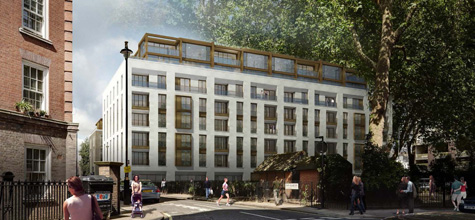West End Commission publishes final report

Last week, the West End Commission issued its Final Report setting out a series of recommendations to enhance and promote the West End. Sir Howard Bernstein, the chairman of the 12 strong commission detailed the report’s recommendations at a breakfast briefing on Tuesday 30 April.
The report seeks to provide a platform for a radical reform programme focussed on the West End as a place. Set within a broader picture arguing for greater devolution for London as a whole and seeks to develop the case for agreements for the Mayor and boroughs on investment, devolution, public service reform and flexibility around regulatory and planning functions.
Optimising the performance of the West End through focussed governance
The Commission recognises the economic importance of the West End to the capital and the UK. Its range and concentration of internationally prestigious institutions, businesses and tourist activity make it quite unique. However, the costs and consequences of hosting such national assets are not factored into how the West End is managed or resourced and the report states that the Government should recognise the financial pressures on the area and address the incentive issue.
Transport infrastructure review
The most pressing requirement identified by the Commission is the need to prioritise work on post-Crossrail planning. Although Crossrail will add significant capacity, this will be rapidly taken up, as London’s population, employment levels and visitor numbers in the West End are all on a significant upward trend. Recommendations include the need to assess the potential for late-night and all-night services, including a one-hour extension of the Underground operation on Fridays and Saturdays. This is already under examination by TfL for the now-upgraded Victoria and Jubilee lines and the report suggests that these time extensions should be expanded in the future.
The report also noted the short-term question of weekend traffic-free days and the Commission supports the expansion of these proposals along the lines of New York’s ‘Summer Streets’ programme.
Infrastructure to deliver a successful business community
The Commission recognises that the West End urgently requires investment in its utilities network to support existing and new businesses. A digital strategy is needed to encourage and retain SMEs within the area as these are seen as the creative future. These not only add significant value to the character of the West End but in many cases create the essential platform for business incubation, notably in digital and new technology.
A sustainable West End
The heat stress emanating from West End businesses is a considerable concern. Measures to move to a low carbon future for the area should meet with universal approval. It will be particularly interesting to see how landowners are encouraged to retrofit existing buildings as this may require compromises on other current planning priorities and obligations.
A safer West End
A further significant pressure for the West End is the challenges in policing, enforcement and street scene management. There are almost as many reported crimes in the West End as there are in the city centres of Manchester, Leeds, Liverpool and Birmingham combined. The Commission notes that there is no single integrated approach to neighbourhood policing, licensing and community safety throughout the West End and this should be addressed.
Maintaining existing residential communities and providing further housing
With reference to housing, the report identifies that the sheer scale and dynamics of the housing market serving London generally, and the West End in particular, makes straightforward, siloed polices implausible. The Commission strongly supports policy requirements to sustain and develop mixed use and tenure as the key to building balanced and self-sustaining communities within the West End. However, it recognises that this perhaps cannot be done entirely effectively or exclusively on an individual borough basis.

The importance of focussed governance
The report draws on international comparisons with central Paris, New York and Hong Kong. It notes that these cities all have a different balance between city-wide and local government, where city-wide government has taken the lead in setting and championing the major redevelopment projects, services and policies. Getting the balance right between city-wide and local authority-led services and policies may be more difficult in London because the balance between the GLA and London boroughs is more delicate. A strong deal between the GLA and relevant boroughs will be crucial to setting a coherent policy and financial framework for the West End and central London more widely.
What next?
The stakeholders have set out a plan of action to take these recommendations forward which involve a series of meetings between key organisations and leaders such as the Mayor of London. This will culminate in a joint letter from London Councils and the Mayor to central government setting out proposals for a new finance and government settlement for London in June. Following on from this, the terms of reference and programme of activity for a new West End partnership will be developed and agreed.
The Commission’s final report sets out an ambitious and far reaching agenda, which could have very significant implications for London and the West End. Like many, we will watch the progress of the recommendations with great interest and welcome this body of work that adds to the debate about how the already successful West End can be further enhanced.

Will Lingard
Director
020 7851 4043
[email protected]

Matt Humphreys
Associate Director
020 7851 4025
[email protected]
Download
You can read the full article as a downloadable pdf here.
